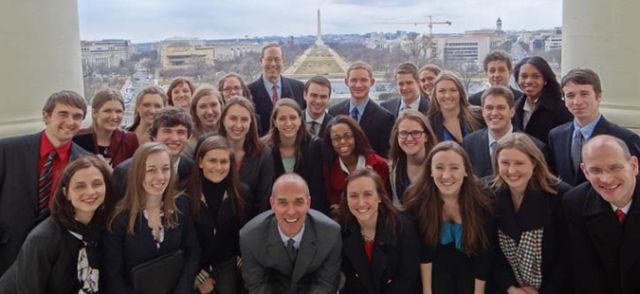Document Type
Article
Publication Date
12-2010
Publication Source
Electoral Studies
Abstract
Every election has unique elements, but the 2008 U.S. presidential race had it all: an African-American presidential candidate who won his party’s nomination by defeating a former first lady, an historically unpopular outgoing president, two ongoing wars, a failing economy, and a war hero running for president with a female vice-presidential running mate. With so many unique elements to account for, disentangling their independent effects to identify the dominant factors shaping the 2008 election is a tremendous challenge. This paper explores a wide variety of factors potentially influencing the 2008 vote, but it devotes particular attention to two exceptionally relevant factors: racial attitudes and succession effects.
We begin this paper with a discussion of racial attitudes and succession effects’ relevance to vote choice. Then we test the effects of racial attitudes and succession effects, as well as other important factors, on vote choice in 2008, by analyzing the 2008 American National Election Studies (ANES) traditional September–October pre-election survey and November–December post-election survey.1 Finally, we test whether the racial attitude effects found in our 2008 results are unique to the Obama candidacy, or if similar results would be obtained by comparable analysis of the two most recent elections not contested by an incumbent president, the elections of 1988 and 2000, or in the preceding election of 2004.
Stated concisely, our analysis shows that, of all the unusual factors shaping vote choice in 2008, two particularly important ones were racial attitudes and dissatisfaction with the Bush Administration. The comparison with 1988 and 2000 shows that attitudes toward the previous administration generally affect voting even when the incumbent is not running, and regardless of whether the incumbent party’s presidential candidate was a member of the outgoing presidential administration. The comparison with previous elections, including 2004, also provides an important demonstration that the racial attitudes effect was specific to 2008. Clearly, the historic nomination of an African-American for the presidency made racial attitudes more important in voting than they had been in analogous elections.
Inclusive pages
569–581
ISBN/ISSN
0261-3794
Document Version
Postprint
Copyright
Copyright © 2010, Elsevier
Publisher
Elsevier
Volume
29
Issue
4
Peer Reviewed
yes
eCommons Citation
Weisberg, Herbert F. and Devine, Christopher J., "Racial Attitude Effects in the 2008 Presidential Election: Examining the Unconventional Factors Shaping Vote Choice in a Most Unconventional Election" (2010). Political Science Faculty Publications. 93.
https://ecommons.udayton.edu/pol_fac_pub/93
Included in
American Politics Commons, Civic and Community Engagement Commons, Demography, Population, and Ecology Commons




Comments
The document available for download is the author's accepted manuscript, provided in compliance with the publisher's policy on self-archiving. Differences may exist between this document and the published version, which is available using the link provided. Permission documentation is on file.
Citation: Weisberg, Herbert F., and Christopher J. Devine. 2010. “Racial Attitude Effects in the 2008 Presidential Election: Examining the Unconventional Factors Shaping Vote Choice in a Most Unconventional Election.” Electoral Studies 29(4): 569-581.